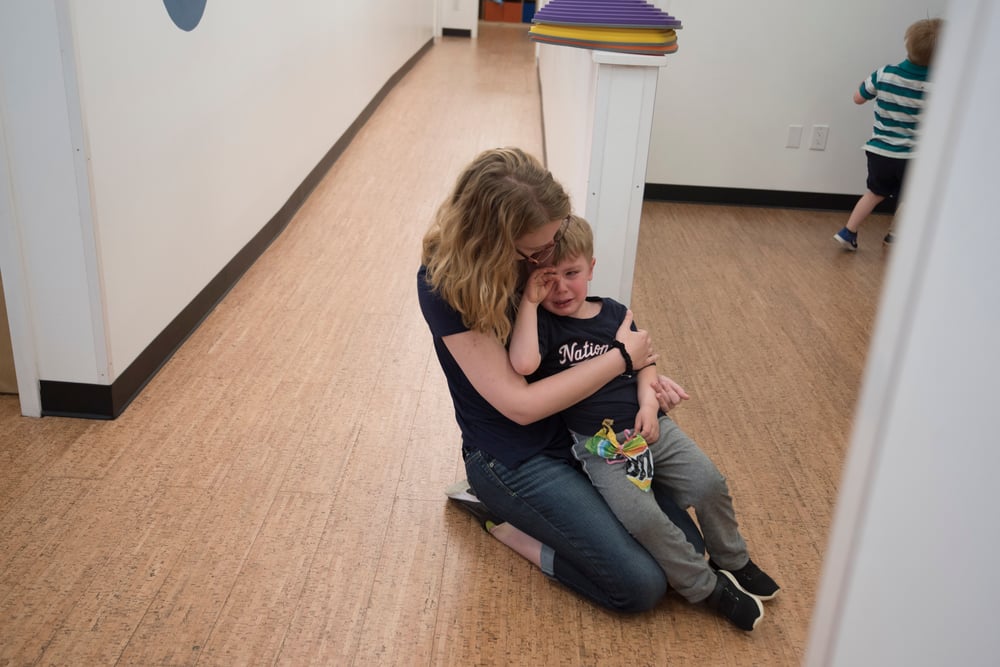
These are anxious times for our nation. Children, parents and child care providers are all carrying an extra burden as they deal with the demands and uncertainties of the COVID-19 pandemic. This is an especially difficult time for a child to experience the death of a family member or friend.
Even in the best of times, child care providers and other educators play a unique and powerful role in supporting grieving children. For example, educators can help children understand basic concepts about death. They can be available to talk, and—more importantly—listen to children at a time family members may be less available because of their own grief. Educators can also make accommodations in learning and social activities if children are struggling academically or socially.
These gestures are even more vital during this pandemic. The website of the Coalition to Support Grieving Students offers a wide range of resources, including a selection of written materials and webinars focusing specifically on the COVID-19 pandemic. Child Care Aware® of America is a member of the Coalition.
The Pandemic Makes Children’s Grief More Challenging
While each child’s experience of grief is unique, most grieving children share common characteristics. The COVID-19 pandemic intensifies these. For example, grieving children:
- Are frightened about their own health or that of people close to them. They often worry that they or loved ones might die. In this pandemic, such things may actually happen.
- Feel isolated. Grief is powerful and confusing. Both peers and adults may withdraw from a grieving child, not knowing what to say or do. In the COVID-19 world, physical distancing and school closures exacerbate isolation.
- Experience secondary losses. A grieving child’s family may need to move in with relatives or find less expensive housing. The child may have to attend a new school. Because of financial challenges related to the pandemic, many families are having to make exactly these kinds of changes.
- May find learning challenging. Academic challenges are common during acute grief. Today, with educators as well as students exploring how to learn differently, such challenges are also common.
- Find multiple losses even more difficult. In some neighborhoods, children may have lost multiple family members, as well as friends or teachers, to COVID-19.
- Live in families that are feeling overwhelmed. Grieving families may find it difficult to manage simple daily tasks—shopping, cooking, cleaning. During COVID-19, few families have not also experienced feeling overwhelmed by the challenges of the pandemic.
What Child Care Providers Can Do
- Keep talking with and listening to children. Grieving children want to have conversations about what is happening to them and their families. Engage them in creative activities, such as drawing, writing poems or dancing that allow them express their emotions. Ask questions about their creative work.
- Keep talking with parents. Ask parents to let you know if anything has happened in their child’s life that might affect their social and learning interactions. Ask specifically about stressors related to the pandemic—how are the parents doing? How are their kids doing?
- Provide learning opportunities that talk about troublesome feelings. Help children learn to name difficult emotions such as sadness, anger and fear. Discuss ways to get support for such feelings, as well as how children can support peers.
- Keep being a resource for grieving children. Explore more of the materials at the Coalition website. Read our book, The Grieving Student: A Teacher’s Guide. (While the suggestions are geared toward school-based educators, most can be adapted for other settings, including childcare programs.)
- Know that these efforts make a true difference. Your students will remember this period in their life, the losses they suffered, and the sincere assistance you offered them.
This post was written by: David J. Schonfeld, MD, FAAP, is Director of the National Center for School Crisis and Bereavement (NCSB) and a nationally-recognized expert on childhood bereavement and school crisis. Marcia Quackenbush, MS, MFT, MCHES, is a family therapist and health educator who serves as an advisor to the NCSB.
![ECCTAC-Logo[1]-1](https://info.childcareaware.org/hs-fs/hubfs/Rich%20Text%20Pasting/unknown-1595431381223.png?width=299&name=unknown-1595431381223.png)





